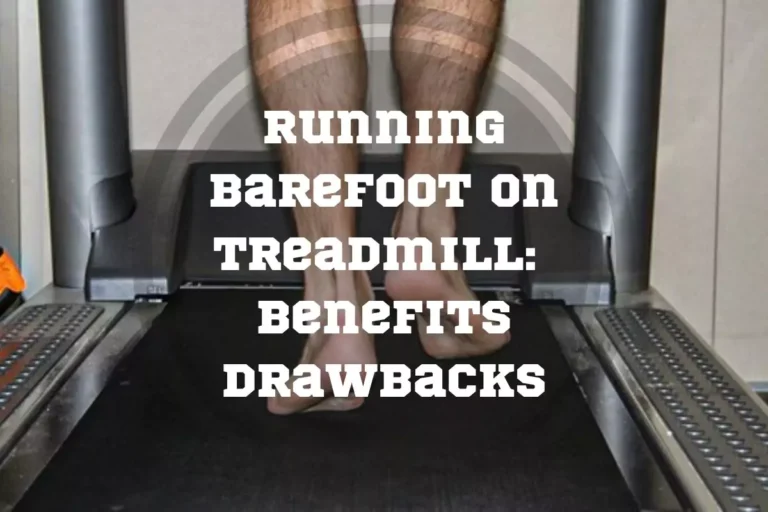3 Day a Week Half Marathon Training Plan: Prepare for Run
Reviewed by: Sergii Putsov (PhD in Sport Science)
Looking to tick off a half marathon from your blacklist? Well, here’s what you need to achieve this goal: 3-day-a-week half marathon training is a great place to start. Training consistently for 3 days over several weeks will prepare you for the demands of a half marathon. In this article, we will equip you with what you need to know to prepare for a half marathon and a tremendous 3-day running program to help prepare you. Let’s dive in!
Is it enough to train 3 days a week to prepare for a half marathon?
3-day-a-week half marathon training over 8 to 16 weeks offers sufficient time to prepare for a half marathon. Exercises like long runs, interval runs, and tempo runs should fill your 3-day running program, and progress overload should be added weekly to help you increase your overall fitness.
Running 3 days a week: How to prepare for half-marathon
Given the seemingly demanding nature of the race, the idea of running just three days a week to prepare for a half-marathon may raise people’s eyebrows. However, this approach can be efficient if done correctly and diligently, particularly for those with limited time availability or who are new to the world of half marathons.
As you prepare for a half marathon, the key is to build up enough mileage to get your body accustomed to the required running. You have to check your current ability to gauge how much you should be running and how far your goals should be weekly.
Here’s a starting point for you: If you can run 5 km, you should be able to run a half marathon within two months with proper training. However, if you cannot run 5 km now, you must start training a little earlier and create a suitable 3-day-a-week half marathon training schedule to help you achieve your goals.
Another way to gauge your running ability is by measuring your Maximum Aerobic Speed (MAS) and Maximum Heart Rate. You can calculate your MAS with various methods; the Half-Cooper Test stands out as a great choice. In the Half-Cooper Test, you must run as far as possible on a flat running trail or course within six minutes.
To calculate your MAS, simply divide the distance you covered by 100. For example:
Likewise, most half-marathon runners run within 60%–80% of their MHR during the race. You first need to work out your MHR to work this out for yourself. This can be done by subtracting your age from 220 and then calculating the corresponding percentage. Both your MAS and MHR are vital factors you can use to prepare for half-marathon training 3 days a week.
A 3-day running program is an excellent start to building your fitness level as you work toward these goals. If you are new to running, having breaks between running days can help your body recover for the next day. Now, let’s look at some pros and cons of a 3-day-a-week running plan for a half marathon.

Advantages
There are several compelling benefits to adopting a three-day-a-week half-marathon training plan:
- Time Efficiency: A three-day running schedule allows flexibility in fitting training into a busy lifestyle.
- Reduced Injury Risk: Fewer training sessions can lead to better recovery and a lower risk of overuse injuries.
- Life-Training Balance: This approach contributes to a more balanced lifestyle, minimizing the chances of burnout from excessive training.
- Ideal for Beginners: Individuals new to running or those embarking on their first half marathon can benefit from a gradual training buildup without overwhelming the body.
Disadvantages
On the flip side, there are some potential drawbacks to the three-day-a-week half-marathon training plan:
- Slower Progress: Compared to more intense training schedules, progress in endurance and speed might be slower.
- Limited Cardiovascular Conditioning: Fewer training days might result in less robust cardiovascular fitness.
- Reduced Training Variation: With only three training days, there might be limitations in incorporating a wide range of training types.
3 Training Methods You Can Use in a 3-Day-a-Week Half-Marathon Training Plan
How you train for a half-marathon is vital. You must use your time wisely if you’re embarking on an 8-week half marathon training 3 days per week. Choosing suitable training methods is a part of this process. With that in mind, before you get into training, consider these factors to help you succeed:
- Take it slow: Whether you are a beginner or a well-seasoned runner, as you begin to train again, it’s essential to take it slow so your body can adapt to the demands placed on it well.
- The more time you have to train, the better: If you start training earlier than 8 weeks, you will have the time to slowly improve your overall fitness. Give yourself sufficient time to get into shape.
- Eat correctly: A healthy diet is the difference between success and failure for many runners. Eating healthy before a run or half marathon will give you the energy you need to achieve your goals.
- Purchase suitable running shoes: Trust us, choosing good running shoes makes a difference! Look for shoes that are comfortable, supportive, and lightweight.
- Choose the right running clothes: Make sure your running clothes are weather-appropriate and breathable. This might include a runner’s rain jacket or a sleeveless running vest.
- Plan wisely: Set weekly goals. If you have 8 weeks to prepare, you must fill your training program with valuable workouts to help you achieve your goals.
Now that you have a few things to consider before you plan your 3-day-a-week half marathon training schedule, let’s look at some workouts we use to train for half marathons.

1. Interval Runs (IR)
IRs involve combining high-intensity runs with periods of low-intensity recovery. Often linked with anaerobic training, interval training is known to improve fast-twitch muscle fibers. This kind of training not only helps boost your top speed but also trains your body to handle and recover from intense running periods. This ability is crucial, especially if you’re aiming for a strong finish in a half marathon.
2. Long Runs (LR)
Long runs are beneficial for training for a half marathon. LRs progressively increase your endurance and mental health. Let’s be honest; we eventually hit a wall in the long run. LRs are where you can train yourself physically and mentally by progressively overloading yourself with every training session. By gradually increasing the distance of your long runs week after week, you’re conditioning your body to handle the demands of the half marathon distance.
3. Tempo Runs (TR)
TRs require you to keep a comfortable yet challenging pace below your MAS and MHR. TR training increases your lactate threshold, which is when lactic acid builds up in the muscles, leading to fatigue. Increasing this threshold allows you to run faster for longer periods, which is invaluable for competing in half marathons.
Subscribe to Our Running Newsletter!
Get free running tips from renowned professional athletes and discounts from top-notch brands.
Half marathon training plan for 3 days a week
Ready to hit the road and train? Here’s a training schedule we suggest using. We will do an 8-week half marathon training 3 days per week for this schedule. Note that each week, we are increasing the distance or difficulty of the exercise. This is called progressive overload. This is used to teach your body to adapt to the new demand required to perform and, in turn, increase your VO2 Max and lactate threshold.
Once you have gauged your ability, you can either start at 3 km or 5 km. Remember, starting slowly is important to avoid injury. These exercises are perfect for half-marathon training 3 days a week.
3-Day Training Plan For Beginners
| Week | Day 1 (Cross) | Day 2 (IR) | Day 3 (LR) |
|---|---|---|---|
| 1 | 3-5 km | 4×400 m | 4-6 km |
| 2 | 4-6 km | 4×500 m | 5-7 km |
| 3 | 5-7 km | 4×600 m | 6-8 km |
| 4 | 6-8 km | 6×600 m | 8-10 km |
| 5 | 8-10 km | 6×700 m | 10-12 km |
| 6 | 8-10 km | 7×700 m | 12-14 km |
| 7 | 10-12 km | 7×800 m | 14-16 km |
| 8 | 10-12 km | 8×800 m | 16-18 km |
3-day training plan for Experienced Runners
| Week | Day 1 (TR) | Day 2 (IR) | Day 3 (LR) |
|---|---|---|---|
| 1 | 4 km | 8×400 m | 10 km |
| 2 | 4.5 km | 8×500 m | 12 km |
| 3 | 5 km | 7×600 m | 14 km |
| 4 | 6 km | 7×800 m | 16 km |
| 5 | 7 km | 4x1000m | 18 km |
| 6 | 8 km | 10x1200m | 20 km |
| 7 | 9 km | 11×1400 m | 21 km |
| 8 | 10 km | 12x 1600 m | 22 km |
Tips for sticking to a 3-day per week half marathon training schedule
Sticking to a 3-day per week half marathon training plan can be difficult, especially when you first begin. However, here are some tips to help you see it through:
Change it Up
Fatigue can also be a result of boredom. Keep your training sessions interesting. Run a different route, and listen to inspiring music. Try to achieve a new goal with each session. Keeping your training interesting is a great way to keep you driven as you train for that half marathon.
Allow Your Body to Recover
Nothing discourages training more than having a sore body. If you overdid it in one day, you must allow your body to recover well before you get back out there. Regulate your training intensity to allow your body to recover before your next session.
How much Time to train for a half marathon with a three-day a week Plan?
The duration of your 3-day-a-week marathon training program will depend on your current fitness level. Generally, a 3-day per week half marathon training plan can span 8 to 16 weeks, or more. Remember, the more time you have to train, the more gradual your development will be.
For beginners, start as early as possible. A 16-week plan will give you sufficient time to ease into running and achieve your goals. If you require less, an 11- or 8-week plan should be adequate.
Frequently Asked Questions About 3 Day a Week Half Marathon Training
Is running 3 days a week enough for a half marathon?
Running three days a week can provide you with ample marathon prep if you train wisely. Combining various training methods and training consistently should help you achieve your goals.
How much weight will I lose running 3 times a week?
Weight loss from running three times a week varies depending on the distance you run, the tempo at which you run, and your diet. On average, experts say that runners burn up to 3600 calories on an 8-mile run.
Final Thoughts on 3 Day a Week Half Marathon Training
3-day-a-week half marathon training is a proactive way of preparing for a half marathon. While its result might not be as fast as other rigorous training programs, using a 3-day running program over several weeks is more than sufficient to get your body to the point where it can handle the demands of a half marathon.
Using exercises like long runs, tempo runs, and interval running in this program should help you prepare. If you have experience with half marathon training 3 days a week, we would love to hear from you. Feel free to share your experiences with us in the comments section below.
Also read:
- Running With Bronchitis
- Beans for Runners
- Running and Lactic Acid
- What to Eat Before a 10K
- Are Training Shoes Good for Running
- Best Running Shoes for Seniors
- Running With Sciatic Nerve Pain
- Is An 8 Minute Mile Good
References:
- The Fitness Zone // Australian Institute of Fitness: https://fitness.edu.au/the-fitness-zone/training-at-maximum-aerobic-speed/
- Target Heart Rates Chart // American Heart Association: https://www.heart.org/en/healthy-living/fitness/fitness-basics/target-heart-rates
- Target heart rate for exercise // University of Iowa Health Care: https://uihc.org/health-topics/target-heart-rate-exercise
- Nutrition and athletic performance // MedlinePlus: https://medlineplus.gov/ency/article/002458.htm
- Choosing the Right Running Shoe // UCSF Health: https://www.ucsfhealth.org/education/choosing-the-right-running-shoe
If you have any questions or suggestions, you can contact us via email – [email protected]






